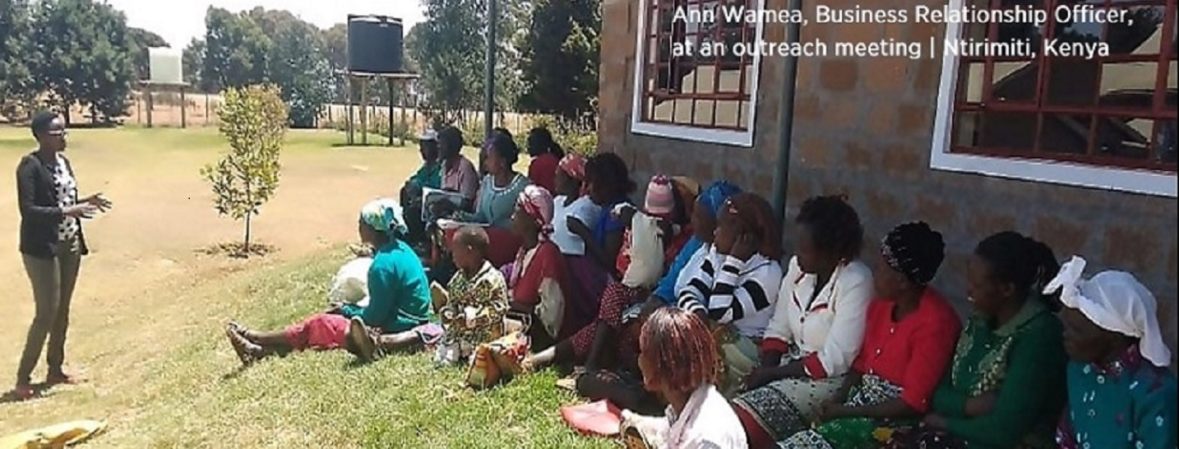
Welcome to the ACT village, Ntirimiti, Kenya
Thank you for your generous donation to Hand in Hand Eastern Africa’s Community Uplift Programme. Thanks to your donation, the village of Ntirimiti will be transformed over the next two and a half years. Together, we will aim to train 500 poor and marginalised people in entrepreneurship. This will lead to some 350 small enterprises being created and strengthened, which in turn will lead to approximately 1,250 children, women and men being lifted out of poverty.
About your village
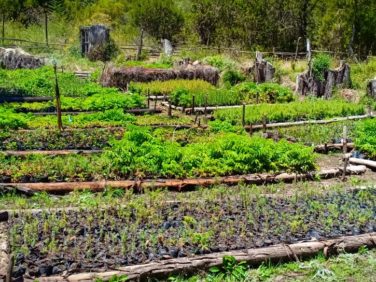
Tree nursery | Ntirimiti, Kenya
Ntirimiti is on the eastern slopes of Mount Kenya where just ten per cent of the local population have jobs with a regular wage. However, lack of skills and capital has hindered the growth of the growth of self-employment. As an example, many local farmers have tried to establish tree nursery businesses but, without the proper structures and irrigation, many are struggling.
Hand in Hand is confident its programme, which combines savings and business skills, will make a real difference to the working lives of the residents of Ntirimiti.
Nothing like Hand in Hand Eastern Africa’s Community Uplift Programme as ever been tried in Ntirimiti before, but that is precisely why local leaders have welcomed us into their community. It is their co-operation that will enable us to work effectively.
Ann Wamwea, your Business Relationship Officer (BRO)
Business Relationship Officer (BRO),Ann Wamwea, is the trainer who will support Ntirimiti’s villagers on their journey from subsistence to success.
Ann is 28 years old and joined Hand in Hand Eastern Africa in March 2015. She graduated from the University of Nairobi with a Bachelors of Arts Degree in Economics and Sociology. She is familiar with the area and gets on well with the community and local leaders, local administrators and other NGOs in the area.
Ann tells us, “I am looking forward to creating impact and bringing about change in Ntirimiti. I have already met several of the local residents. It is really encouraging to see how enthusiastic they are to learn and to work their way out of poverty.”
Download your reportOur warmest thanks
Thank you for your very generous donation to Hand in Hand Eastern Africa’s Village Programme. This is the second update on your donation at work in the community of Ntirimiti in Kenya, six months into the project.
Summary of achievements so far

An update from Ann Wamwea, your business trainer
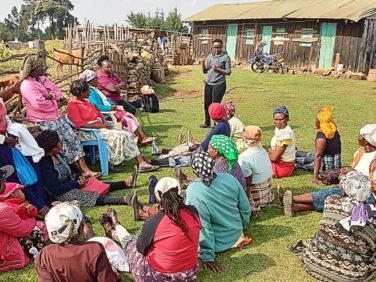
Ann Wamea training the Mwendwa Women Group | Ntirimiti, Kenya
In our last update, we introduced you to Ann Wamwea, the trainer supporting Ntirimiti members on their journey from subsistence to success.
When asked about the programme so far, Ann Wamwea tells us, “The welcome from the Ntirimiti residents has been fantastic. They have taken on the early lessons in saving and control of their finances to such a degree that I can already see the impact on their fledgling businesses.”
Voice from the village – Esther Karianki
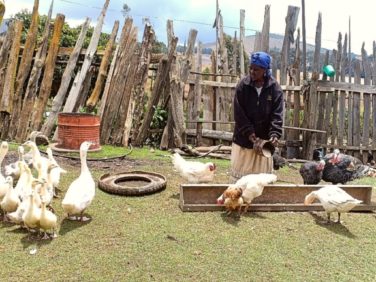
Esther Karianki | Duck farmer | Ntirimiti, Kenya
Esther Karianki is 57 years old with five children. Esther tells us, “Before joining Hand in Hand we had so little money we could not afford to pay the school fees for the two youngest children.”
“All that has changed now.”
“The Hand in Hand group saving system meant I could access a loan of KES 5,000 (US$48) from my group’s savings fund, which I decided to invest in two ducks (I knew they would fetch a better price than chickens at the market). Once those first two ducks laid their eggs, I ‘brought on’ the ducklings and then sold them at the local markets for between KES 3,000 (US$29) and KES 5,000 (US$48) each. I made enough money to pay the loan back and even make improvements to our home.”
“Now I have a quite a flock of ducks – egg layers and then ducklings. The money I earn goes towards food and clothes for us all,” says a very happy Esther.
For more information and voices from the village, please download your report.
Our warmest thanks
It has been a year since the Association of Corporate Treasurers’ support put the community of Ntirimiti Village in Kenya on a path from subsistence to success.
This report, sent directly from the team leading your project in Kenya, celebrates that anniversary. In the project’s first 12 months, your project team has enrolled 273 community members for training, with these members going on to create 134 businesses.
Review against targets
One year into the project, we have achieved the following results in Ntirimiti.
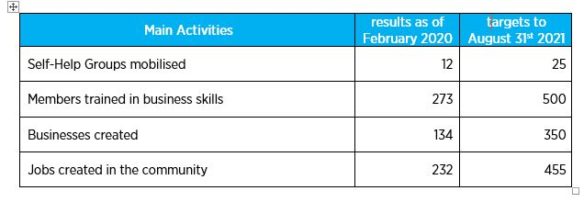
Judith Kinau, farmer

Judith Kinau | Farmer | Ntirimiti
When asked about her training so far, 65 year old Judith Kinau tells us, “Before Hand in Hand, I earned just KES 3,500 (US$35) a month by farming carrots.
“Elosy showed me how to plan ahead so that I could harvest the carrots when the price would be highest at the market. This simple change means I now earn KES 6,000 (US$60) per month, which has made a huge difference to our lives.”
Judith is saving to buy a water tank so she can irrigate her crops and is planning to apply for a loan to so she can expand the farm.
Download your report
Raising women’s voices in Afghanistan
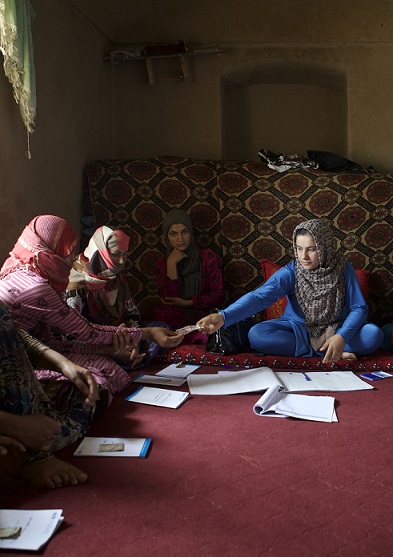
Last year, we teamed up with the Hilti Foundation and CARE, whose Every Voice Counts programme aims to help Afghan women speak up and be heard by local authorities and decision-makers. What would happen, we wondered, if Hand in Hand combined our business and skills training with CARE’s work helping women advocate for change in areas ranging from gender-based violence to women’s health? Does earning an income – and possessing the skills that entrepreneurship implies – make women more confident to speak up inside and outside the home?
By tracking three cohorts of women over two years – those who receive CARE’s training, those who receive Hand in Hand’s and those who receive both – we plan to find out. So far, the results are promising.
Earlier this year, almost a third of the way through programme, researchers from Global Impact Management Consulting conducted a mid-term review of the project. Already, 44 percent of women who receive both business training and social empowerment training reported having more influence and decision-making power in the home. Perhaps more surprisingly, an almost equal number of women who only receive Hand in Hand’s business training – 38 percent – reported the same. Both numbers are expected to increase as the programme, which also aims to create almost 1,000 new jobs, progresses.
44% of women report greater decision-making power at home (so far)
1,000 jobs created by project-end
7,000 lives improved by project-end
